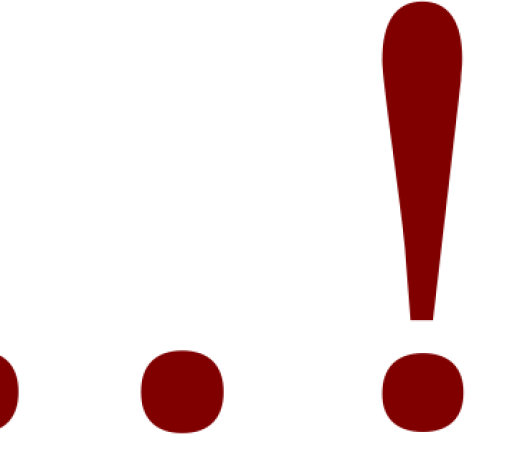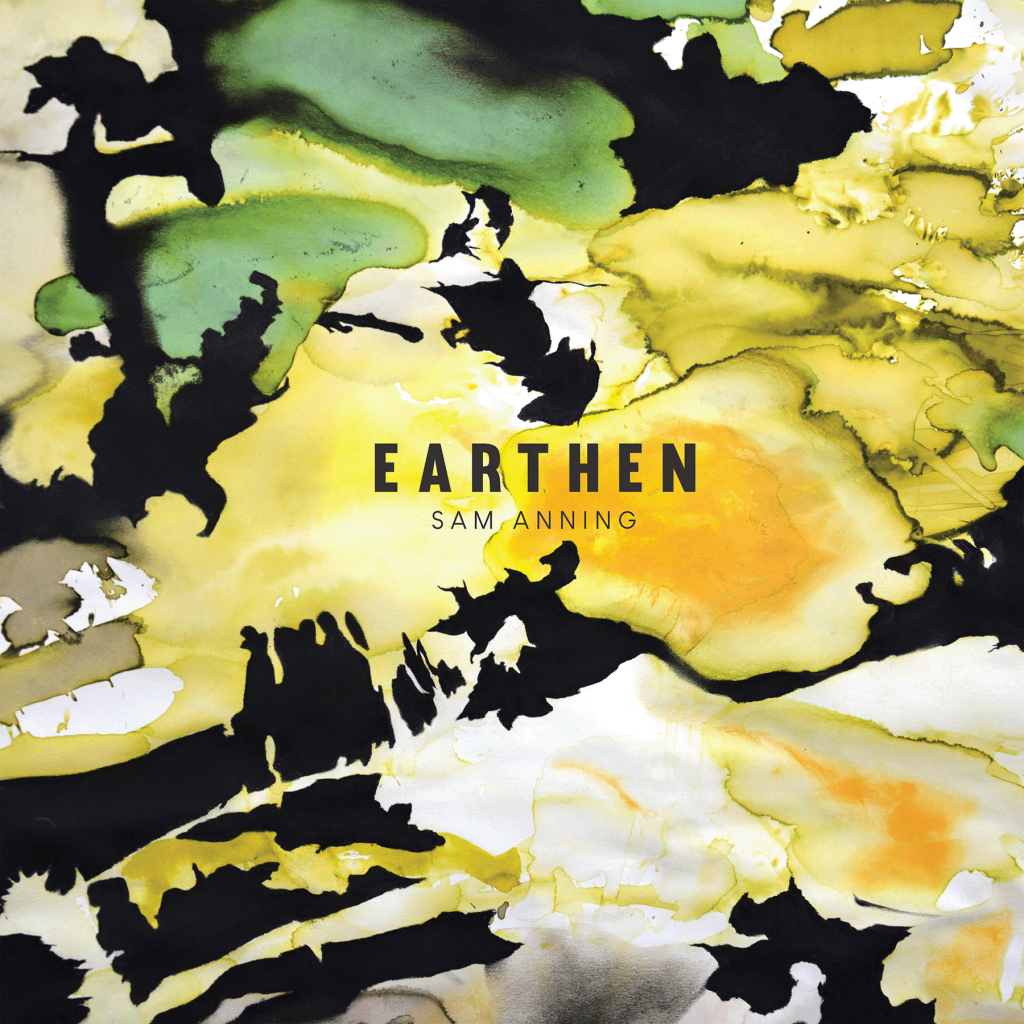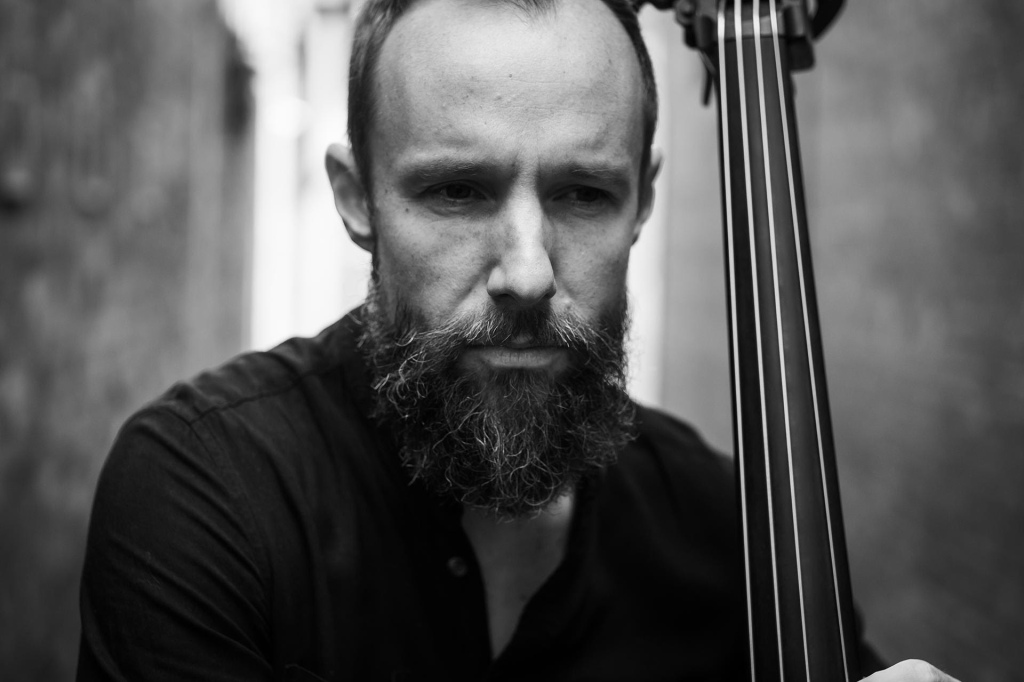[Editor’s note: As part of TRoS’s mission to promote in-depth listening and dialogue around jazz and improvised music communities, for a long while now I’ve been wanting to expand this site with the perspectives of like-minded writers who share my commitment to public scholarship and the value of exploring the jazz world at the intersections of the arts, academia, and activism. I’m thrilled to welcome my friend and mentor Gabriel Solis as a contributor. Through his work, career path, and lifeways, Gabriel has been a constant inspiration. I’m grateful for his participation. Anyone interested to contributing to TRoS should reach out here. (MJL)]
…! …! …!
In the course of Earthen’s nine tracks Sam Anning and his collaborators have produced a remarkable, elegiac memorial in homage to the great Indigenous Australian singer, songwriter, and activist, Archie Roach (Gunditjmanra and Bundjalong). The album will be of interest to many listeners for purely musical reasons, but the connection to Roach gives the work a depth of meaning that adds to the work’s vitality, in my experience. Anning worked as the bassist in Roach’s band during the last three years of Roach’s life, and can be heard in that capacity notably on the recording of songs from Charcoal Lane produced for the 30th anniversary of Roach’s debut album. Anning’s rich, restrained bass playing is beautiful underneath Roach’s voice, itself deeply engrained with the age and experience that separates that album from the songs’ original recordings.
Earthen, Earshift Music, 2024. Personnel: Sam Anning, double bass, compositions; Mat Jodrell, trumpet; Carl Mackey, alto saxophone; Julien Wilson, tenor saxophone, electronics; Andrea Keller, piano, Wurlitzer; Theo Carbo, electric and acoustic guitars; Kyrie Anderson, drums. Tracks: Rise Up Lights; Strangers; Hard Light; Transitive States; Kicking, Not Screaming; Moonland; Uvalde; The Flipper; Eleventy Million (for Auggie Bruten). Recorded in Preston, Victoria, Australia at Headgap Studio. https://samanningmusic.com/.
Listeners will not find a traditional tribute album here. This is not “jazz interpretations of the songs of Archie Roach” (mercifully, I suppose). Rather I hear this as a meditation on how to make sense of things Anning learned from knowing Roach, and an attempt to honor and raise up Roach’s memory through that meditation. In the liner notes Anning describes a final interaction with Roach in which Roach—in the ICU, listening to Anning and guitarist Stephen Magnussen play—described music as medicine and instruments as “earthenware.” Anning sums this up, saying, “He showed us the ultimate power of music: it is medicine that comes from the earth, passes through us, heals, connects, cleanses, allows us to briefly transcend our physical bodies, and goes back to the earth, as do we.” Roach’s music itself forms the basis of one track, “Strangers,” in a highly abstracted way (two lines from the songs “Native Born” and “A Child Was Born Here” are key themes for the new song’s composition) and fans of Roach will find that compelling, or at least I did. Beyond that the music offers a chance to think on this larger lesson. I hope listeners outside Australia (and inside!) who may not know Roach’s work will be moved to explore it, perhaps starting with the recent Charcoal Lane re-recording, and moving back to his classic recordings from the 1980s.
The music here is compelling. Formally the band explores a compositional space that delves into the power of repetition as a ground for creative jumping off. Anning uses the convention of the credit “feat.,” more commonly found in hip hop and R&B recordings, to identify the band member who takes a leading, improvisational role on a given track. Two tracks feature drummer Kyrie Anderson, and one each features guitarist Theo Carbo, tenor saxophonist Julien Wilson, pianist Andrea Keller, alto saxophonist Carl Mackey, and trumpet player Mat Jodrel. This format is satisfying, giving each of the tracks a kind of coherence that makes them significant statements. To my ear the tracks featuring Anderson are particular stand-outs for the combination of compositional weight and improvisational wings. The elegiac tone gives the album as a whole an intensity that can make it feel relentless, but close listening also reveals a shape to the tracks’ sequence that offers moments of ebb as well as flow. To me one point of distinct musical appeal is the sound of Anning’s bass, which provides a sonic connection to the 2020 recording of Charcoal Lane songs.
This is not the first project to be developed in Australia to connect jazz with Indigenous music, but is an interesting kind of approach in that space. Unlike the Crossing Roper Bar project, for instance, which brought together the Australian Art Orchestra and the Young Wägilak Group, community artists from Southeast Arnhem Land, for collective interpretations of manikay—ceremonial songs from Wägilak tradition—this project does not explicitly include Indigenous people or Indigenous sound resources. This is complicated territory, and my central feeling is that no particular approach necessarily makes work that is on the right side of an ethical challenge. How do white artists make work that draws on, reflects, honors, explores, Indigenous art without just replicating the power imbalances and histories of violence, extraction, and erasure that characterize the colonial project? Collaboration is one strategy, though it offers no guarantee. I suspect different audiences will have different responses to this approach. I appreciate Anning’s approach to making work that responds to the experience of working with Roach. I did find it surprising that the track descriptions, most of which are poetic without offering concrete points of reference, include one, for “Uvalde,” that indicates the song as a memorial to the victims of the school shooting in the Texas town of that name and a plea for gun law reform in the U.S., but no piece that explicitly memorializes any aspect of the atrocities that mark the colonial history of Australia and its present.
In all this is an album worth spending time with. For Australian listeners it will undoubtedly have the value of hearing a collection of the country’s leading artists working together and the pleasure of hearing a great, lamentedly passed artist’s legacy remembered so thoughtfully. For listeners outside Australia who may not know the musicians on this album or Archie Roach, it will offer the pleasure of hearing voices to get to know more.
…! …! …!

Gabriel Solis is a professor of music and dean of arts at the University of Washington. He has written about jazz in academic journals and books, and he has edited a volume on improvisation. He is interested in the Afrofuturist movement and its connection to histories of Black avant gardism, and in the history of jazz musicians seeking creative inspiration from within the tradition and far beyond. His current research traces the history of Black music as a resource for living among Indigenous communities in Australia and Papua New Guinea.


